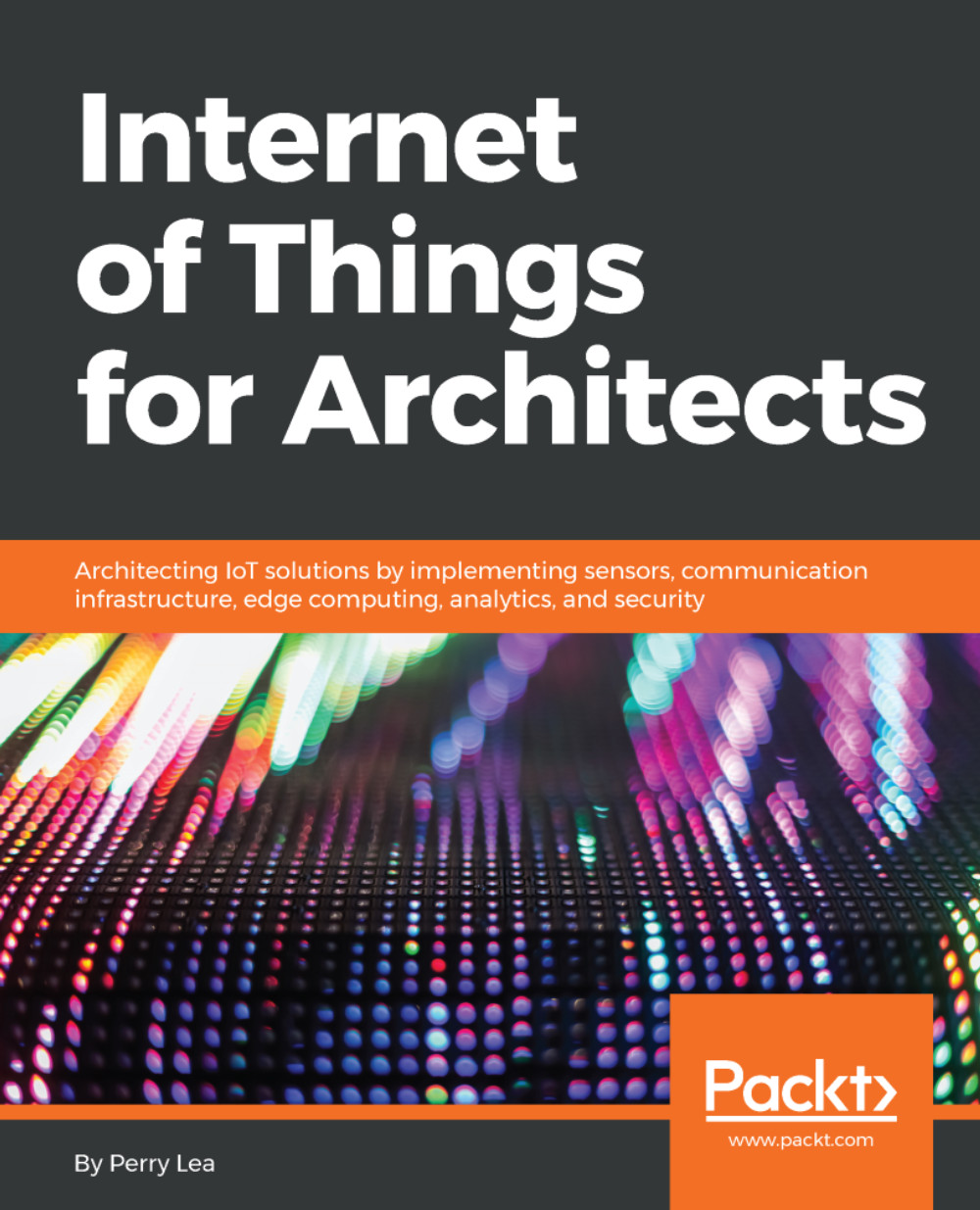These industries will rely on the hardware, software, and services provided by the bulk of the IT industry. Nearly every major technology company is investing or has invested heavily in IoT space. New markets and technologies have already formed (and some have collapsed or been acquired). Throughout this book, we will touch on nearly every segment in information technology, as they all have a role in IoT:
- Sensors: Embedded systems, real-time operating systems, energy-harvesting sources, Micro-Electro-Mechanical Systems (MEMs).
- Sensor communication systems: Wireless personal area networks reach from 0 cm to 100 m. Low-speed and low-power communication channels, often non-IP based have a place in sensor communication.
- Local area networks: Typically, IP-based communication systems such as 802.11 Wi-Fi used for fast radio communication, often in peer-to-peer or...






































































